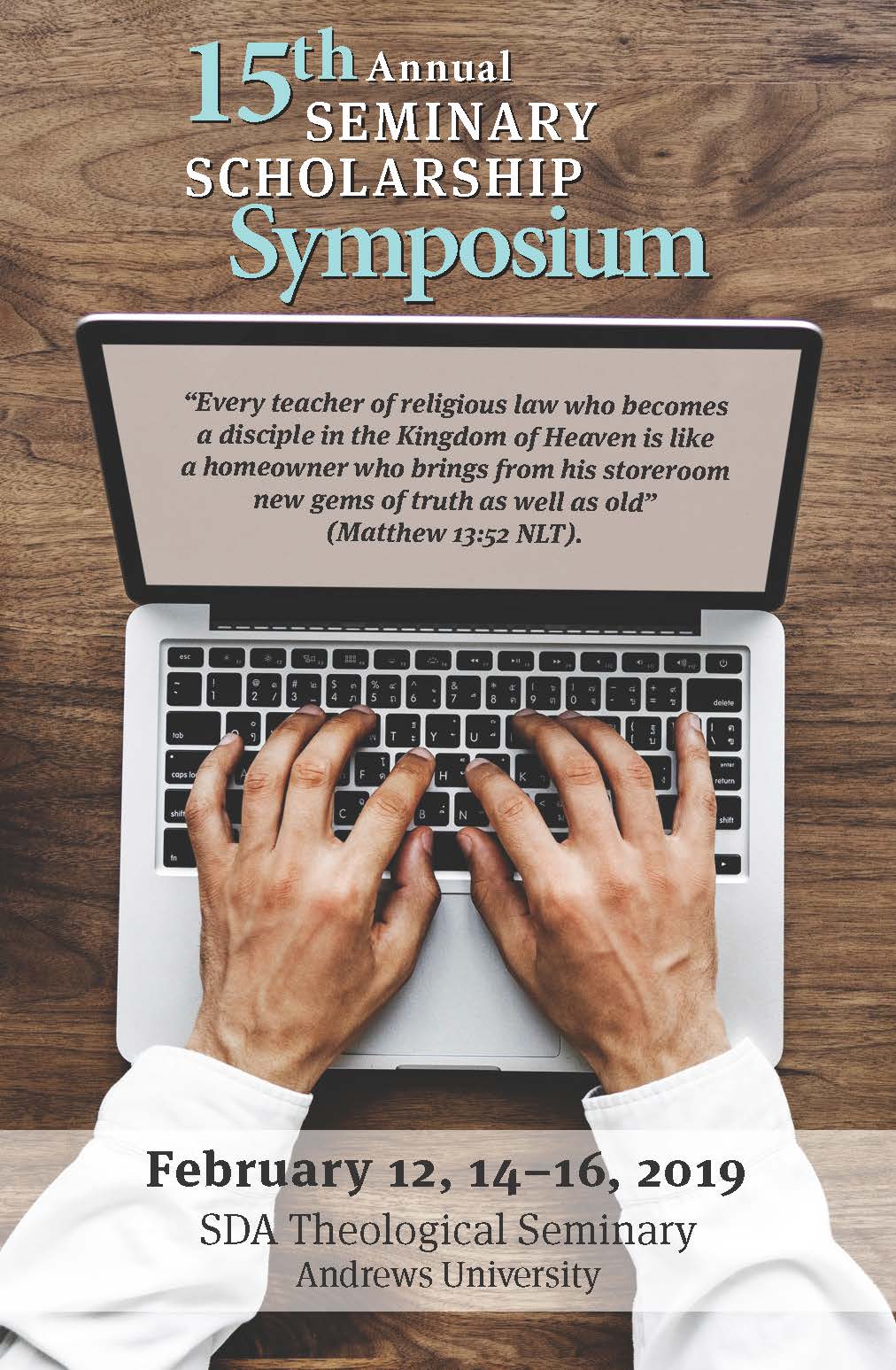A Tale of Two Books: The Relationship between John Harvey Kellogg’s Living Temple and Ellen G. White’s Ministry of Healing
Location
Seminary Room S215
Start Date
15-2-2019 9:45 AM
End Date
15-2-2019 10:05 AM
Description
In contemporary society John H. Kellogg is more known for his medical inventions, than he is for the book The Living Temple, which was published in 1903. However, within Adventism the name Kellogg denotes crisis and controversy. The thesis of this paper is that Ellen White responded to the Kellogg’s publication in three ways: personally—to John H. Kellogg, prophetically—to the Seventh-day Adventist Church, and publicly—with the book The Ministry of Healing, which was published two years later in 1905. It is the public response that is of primary interest to this paper. Ellen White wrote many personal letters to Kellogg leading up to and following, his publication. She wrote letters of concern and warning to parents, ministers, teachers, and the leadership of the Church. In none of her letters did she hold back. It was important that members knew what the theories in Kellogg’s book represented, and why it could be so damaging to the mission of the Church. Kellogg is not mentioned in The Ministry of Healing, although his pantheistic theories are directly addressed. His book is not mentioned, but when you compare her book to his, it is evident that she is responding. For example, he begins with “The Mystery of Life,” she begins with “The True Medical Missionary.” By analyzing her responses, what can we learn from how she publicly dealt with Kellogg’s book?
A Tale of Two Books: The Relationship between John Harvey Kellogg’s Living Temple and Ellen G. White’s Ministry of Healing
Seminary Room S215
In contemporary society John H. Kellogg is more known for his medical inventions, than he is for the book The Living Temple, which was published in 1903. However, within Adventism the name Kellogg denotes crisis and controversy. The thesis of this paper is that Ellen White responded to the Kellogg’s publication in three ways: personally—to John H. Kellogg, prophetically—to the Seventh-day Adventist Church, and publicly—with the book The Ministry of Healing, which was published two years later in 1905. It is the public response that is of primary interest to this paper. Ellen White wrote many personal letters to Kellogg leading up to and following, his publication. She wrote letters of concern and warning to parents, ministers, teachers, and the leadership of the Church. In none of her letters did she hold back. It was important that members knew what the theories in Kellogg’s book represented, and why it could be so damaging to the mission of the Church. Kellogg is not mentioned in The Ministry of Healing, although his pantheistic theories are directly addressed. His book is not mentioned, but when you compare her book to his, it is evident that she is responding. For example, he begins with “The Mystery of Life,” she begins with “The True Medical Missionary.” By analyzing her responses, what can we learn from how she publicly dealt with Kellogg’s book?




Comments
Links to published version of the paper, Andrews University Seminary Student Journal, Vol. 3, Nos. 1–2, 45–54.